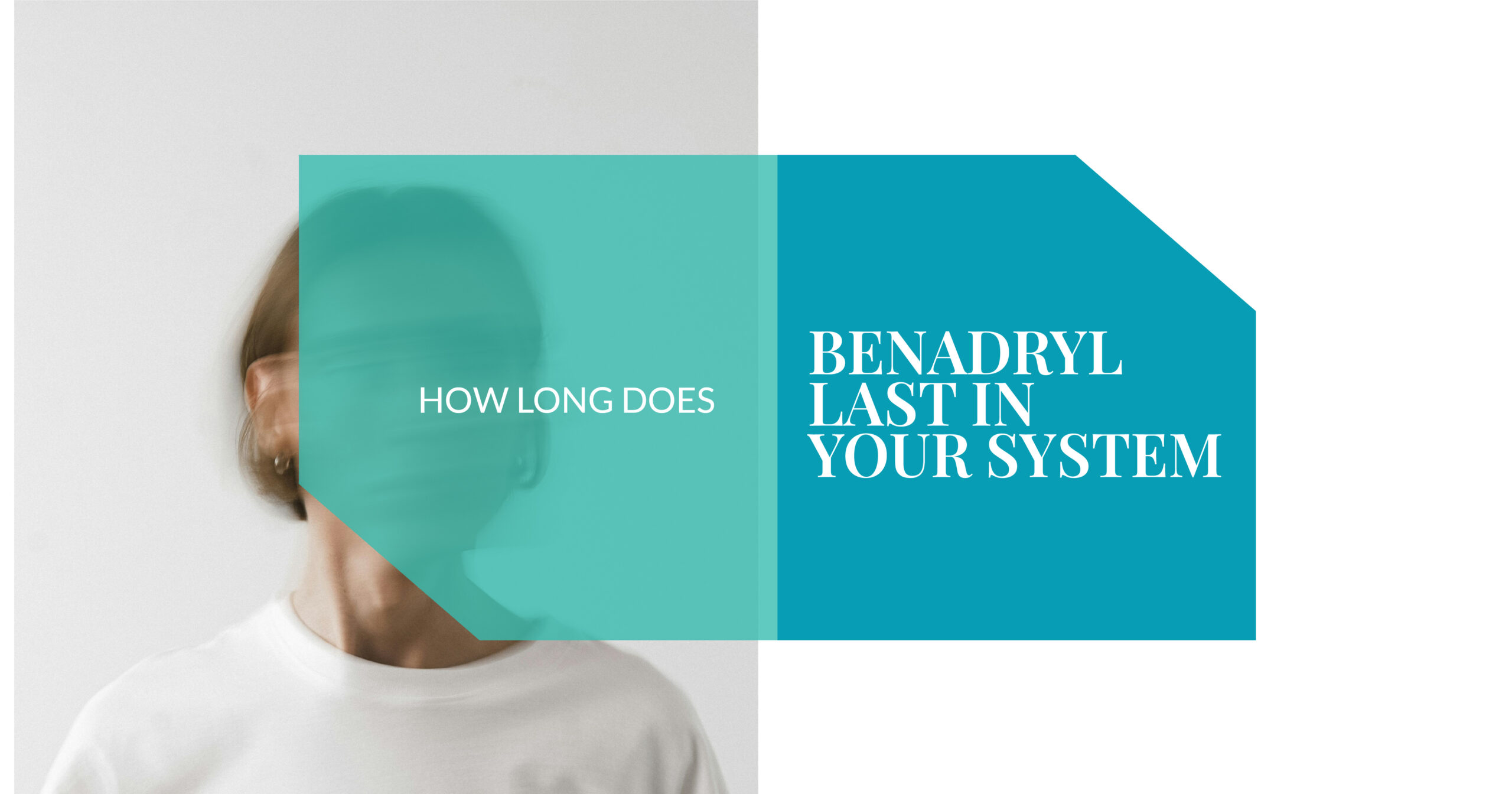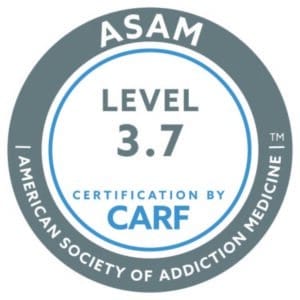Benadryl is a popular prescription drug that medical providers recommend to their patients as one of the top antihistamine medications of today. It really helps people who suffer from allergies and colds and even deals with the manifestations of motion sickness and sleep disturbances.
In this guide we will answer the question “How long does Benadryl last in a human body?”, learn more about Benadryl metabolism, and look into factors that may change the way a patient responds to this medication.
How Benadryl Works in the Body
As an antihistamine medication, diphenhydramine – sold under the name “Benadryl” – is supposed to reduce the impact of histamines on your body. Histamines are the chemicals that usually cause allergy symptoms – from constant sneezing to runny nose – while also weakening the body’s defense system as it tries to fight against pathogens. Benadryl will block them so that your eyes stop watering, you no longer sneeze without a break, and you can relax and feel able to sleep during allergy season especially if it is hard for you to stay away from allergens that are all around you.
Benadryl has also been found useful in the treatment of insomnia in adult patients, it targets motion sickness, and it can be beneficial for people with Parkinson’s disease. Despite its versatility, it is advisable to discuss the potential of this drug with a doctor before you decide to utilize it in your treatment plan. A medical provider will evaluate you to make sure there are no underlying health conditions such as low blood pressure or respiratory diseases that mean you should avoid Benadryl.
Typical Duration of Benadryl’s Effects
It is natural that a patient would be anxious about the effects of any medication – they want the effects to manifest immediately without having to wait any longer especially when it comes to symptoms of such bothersome health conditions as allergies or hay fever. Benadryl onset of action will occur about thirty minutes after the administration of the medication, the effects will reach their peak in one or two hours – and patients often fall asleep during that timeframe – and the effects will last up to six hours making it a great choice for a person who wants to take a pill and carry out their daily obligations or sleep for hours undisturbed.
Be mindful of the dosage – Benadryl overdose is a real possibility for every individual who disregards the recommendations of their physician. If you combine Benadryl with medications that were not approved by your doctor, illicit drugs, and alcohol, the risks of overdose increase. Seek immediate help if you experience mild confusion or delirium, your vision gets blurry, your heart beats abnormally fast, you cannot breathe the way you usually do, and you have vivid hallucinations.
Variations in Duration Between Different Forms of Benadryl
Benadryl comes in three forms – oral, topical, and injectable. Your healthcare provider will tell you which form is preferable in your case:
| Form of Benadryl | Description |
| Oral | Tables you can swallow or chew, capsules, and liquid solutions. Only modify the Benadryl dosing frequency in line with the instructions of the doctor – do not attempt to take more Benadryl if the symptoms manifest much earlier than expected |
| Topical | Creams, gels, sprays, and sticks. Usually, there can be no more than six doses of this medication over the course of twenty-four hours, and the average dose for an adult varies from twenty-five to fifty milligrams. If a dose is lower, it can help you avoid unpleasant side effects such as dizziness and drowsiness |
| Injectable | Benadryl injections are much more rare but they can be more effective for some individuals. Patients often wonder: “How long does Benadryl last if it is in the injectable form?”, and the answer is not going to be much different if you take a pill or apply a cream – however, the injection may work faster for some people. You will notice an improvement in your condition when a skin rash gets less severe and your nose is less congested in about half an hour. |
Factors That May Affect How Long Benadryl Lasts
Another thing that must be on a patient’s mind is related to the variables that change the way they benefit from the effects of Benadryl. Let us take a look at the factors influencing the duration of Benadryl’s effects:

| Factor | Description |
| Age of the Patient | The age of the individual is a crucial factor to consider – moreover, Benadryl is not recommended for babies under one year of age. Adolescents and elderly people typically metabolize Benadryl slower which shortens Benadryl elimination time and prolongs its effects |
| Weight of the Patient | The reaction of the person may vary based on how much they weigh which is why it is important to take that characteristic into account. For instance, if an overweight adult takes a pill meant to lessen the symptoms of an underweight patient, they will not have the same results the latter would accomplish |
| Dosage of the Medication | Naturally, when the dose is lower, it will wear off at a faster pace. Higher doses – prescribed by a doctor or taken at the patient’s own discretion – are going to take a while to leave your body completely |
| Health Condition | Tell the doctor about your kidney or liver disease. These organs are responsible for metabolism and detoxification so if your body takes longer to metabolize Benadryl, it will change the way you feel its effects in regard to your current health issue |
| Interaction With Other Drugs | It is essential to let your physician know what other prescription drugs you have been taking so that they can confirm Benadryl interacts with them safely. For example, if you also take depressants, the sedative effects of Benadryl may be more intense which makes it dangerous for people who must stay awake and alert |
Learn How to Use Medication Safely at Opus Health
Whether you have mental health issues that affect your physical health and you have been taking Benadryl to handle health complications caused by your psychological struggles or you have been misusing Benadryl to the point of feeling the symptoms of withdrawal or developing addiction to this medication, talking to a mental health professional who knows how to guide you at such a vulnerable time is a good idea.
At Opus Health we are ready to discuss how the prescription drugs you have been taking make your life better or worse, how to ensure the administration of various medications remains a safe process, and what should be the next steps towards a healthier and happier life – contact us today and let us give you the advice you need.

FAQs
What is the typical duration of Benadryl effects, and how does it relate to its half-life and active duration?
Benadryl half-life is estimated at about three to nine hours while Benadryl active duration does not exceed six hours when the dose is average for a patient. This means your symptoms will significantly decrease for five to six hours while Benadryl takes one or two days to be completely eliminated from your system – it will be detected if you undergo a urine test at a testing facility so warn whoever tests you about the medication you have been taking.
How quickly does Benadryl start working in the body, considering its onset of action and initial impact?
One of the key advantages of Benadryl is how fast it alleviates the symptoms the patient is struggling with – after you take a pill or capsule or put the cream or gel on the rash caused by the allergy, it will take around thirty minutes for you to feel substantial improvement in your condition.
How often can Benadryl be safely administered with regard to its dosing frequency and duration of effects?
While you need to adhere to the instructions given to you by your physician, Benadryl is usually administered every four to six hours – the label of the medication will inform you how many pills or capsules amount to an average dose for a patient of your age and weight.
What factors influence the metabolism and elimination time of Benadryl, and how do they affect its duration in the system?
Benadryl metabolism is different for every person based on their genetic traits, health condition, age, and the medication they take in addition to this drug. Besides, the effects of Benadryl will be evident much longer if your metabolism is slower which means young adults and people above the age of 50 will not need to take this medication as often as patients whose metabolic rate is average.
How do different forms of Benadryl vary in their duration, and what implications does this have for antihistamine duration and effectiveness?
While oral and topical forms of Benadryl usually start working at the same time, injections bring temporary relief quicker. Nevertheless, the effects of this drug are going to be felt for the same four to six hours depending on the current weight and overall state of health of the individual.












